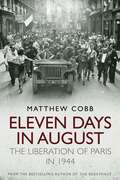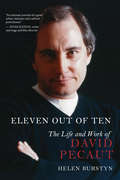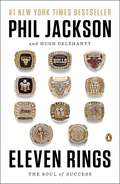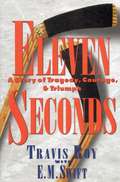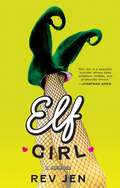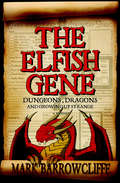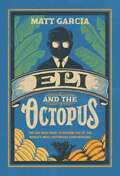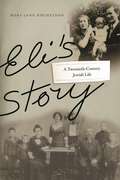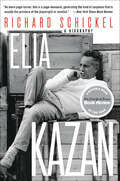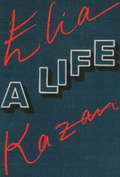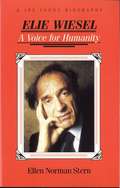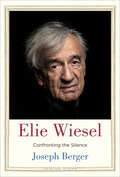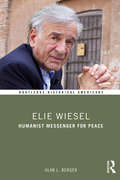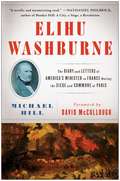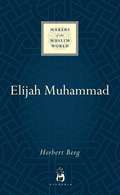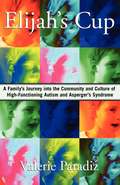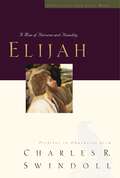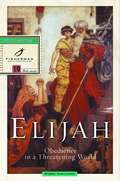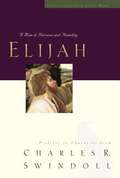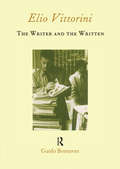- Table View
- List View
Eleven Days in August: The Liberation of Paris in 1944
by Matthew Cobb'I had thought that for me there could never again be any elation in war. But I had reckoned without the liberation of Paris - I had reckoned without remembering that I might be a part of that richly historic day. We were in Paris on the first day - one of the great days of all time.' (Ernie Pyle, US war correspondent)The liberation of Paris was a momentous point in twentieth-century history, yet it is now largely forgotten outside France. Eleven Days in August is a pulsating hour-by-hour reconstruction of these tumultuous events that shaped the final phase of the war and the future of France, told with the pace of a thriller. While examining the conflicting national and international interests that played out in the bloody street fighting, it tells of how, in eleven dramatic days, people lived, fought and died in the most beautiful city in the world. Based largely on unpublished archive material, including secret conversations, coded messages, diaries and eyewitness accounts, Eleven Days in August shows how these August days were experienced in very different ways by ordinary Parisians, Resistance fighters, French collaborators, rank-and-file German soldiers, Allied and French spies, the Allied and German High Commands.Above all, it shows that while the liberation of Paris may be attributed to the audacity of the Resistance, the weakness of the Germans and the strength of the Allies, the key to it all was the Parisians who by turn built street barricades and sunbathed on the banks of the Seine, who fought the Germans and simply tried to survive until the Germans finally surrendered, in a billiard room at the Prefecture of Police. One of the most iconic moments in the history of the twentieth century had come to a close, and the face of Paris would never be the same again.
Eleven Out of Ten: The Life and Work of David Pecaut
by Helen BurstynVisionary social entrepreneur David Pecaut’s life demonstrates how to make a positive impact on a community. City builder David Pecaut has been called a visionary and a pragmatist, passionate and compassionate, a bridge builder, a catalyst, and a trailblazer. Though David was a business leader and management consultant, most of these accolades flow from his volunteer work as a civic entrepreneur. A native of Sioux City, Iowa, David chose Toronto as the beneficiary of his formidable enthusiasm.When Toronto was in the doldrums because of the SARS scare, David helped the city restore its tourism industry by chairing the Toront03 Alliance, launched by a flamboyant Rolling Stones concert. David was perhaps best known for co-founding Luminato, the international festival that each spring showcases the world’s finest artists to audiences of over a million.As chair of the Toronto City Summit Alliance, David worked as easily with the homeless, minorities, and poverty activists as with billionaires, corporate CEOs, and labour leaders to tackle pressing social and economic issues. He was the driving force behind the Career Edge youth internship program, the Strong Neighbourhoods Task Force, the Toronto Region Immigrant Employment Council, DiverseCity, the Emerging Leaders Network, the task force on modernizing income security, and Greening Greater Toronto.David’s efforts to make Toronto the most socially and culturally dynamic urban centre in the world were cut short when he succumbed to cancer in December 2009. When it became obvious that his time was running out, he took copious notes and recorded interviews with friends, colleagues, and family, all of which are the basis for this book, a memoir by his wife Helen Burstyn.
Eleven Rings
by Phil Jackson Hugh DelehantyDuring his storied career as head coach of the Chicago Bulls and Los Angeles Lakers, Phil Jackson won more championships than any coach in the history of professional sports. Even more important, he succeeded in never wavering from coaching his way, from a place of deep values. Jackson was tagged as the "Zen master" half in jest by sportswriters, but the nickname speaks to an important truth: this is a coach who inspired, not goaded; who led by awakening and challenging the better angels of his players' nature, not their egos, fear, or greed. This is the story of a preacher's kid from North Dakota who grew up to be one of the most innovative leaders of our time. In his quest to reinvent himself, Jackson explored everything from humanistic psychology and Native American philosophy to Zen meditation. In the process, he developed a new approach to leadership based on freedom, authenticity, and selfless teamwork that turned the hypercompetitive world of professional sports on its head. In Eleven Rings, Jackson candidly describes how he: Learned the secrets of mindfulness and team chemistry while playing for the champion New York Knicks in the 1970s Managed Michael Jordan, the greatest player in the world, and got him to embrace selflessness, even if it meant losing a scoring title Forged successful teams out of players of varying abilities by getting them to trust one another and perform in sync Inspired Dennis Rodman and other "uncoachable" personalities to devote themselves to something larger than themselves Transformed Kobe Bryant from a rebellious teenager into a mature leader of a championship team. Eleven times, Jackson led his teams to the ultimate goal: the NBA championship--six times with the Chicago Bulls and five times with the Los Angeles Lakers. We all know the legendary stars on those teams, or think we do. What Eleven Rings shows us, however, is that when it comes to the most important lessons, we don't know very much at all. This book is full of revelations: about fascinating personalities and their drive to win; about the wellsprings of motivation and competition at the highest levels; and about what it takes to bring out the best in ourselves and others.
Eleven Rings
by Phil Jackson Hugh DelehantyA New York Times bestsellerDuring his storied career as head coach of the Chicago Bulls and Los Angeles Lakers, Phil Jackson won more championships than any coach in the history of professional sports. Even more important, he succeeded in never wavering from coaching his way, from a place of deep values. Jackson was tagged as the "Zen master" half in jest by sportswriters, but the nickname speaks to an important truth: this is a coach who inspired, not goaded; who led by awakening and challenging the better angels of his players' nature, not their egos, fear, or greed.This is the story of a preacher's kid from North Dakota who grew up to be one of the most innovative leaders of our time. In his quest to reinvent himself, Jackson explored everything from humanistic psychology and Native American philosophy to Zen meditation. In the process, he developed a new approach to leadership based on freedom, authenticity, and selfless teamwork that turned the hypercompetitive world of professional sports on its head.In Eleven Rings, Jackson candidly describes how he:Learned the secrets of mindfulness and team chemistry while playing for the champion New York Knicks in the 1970sManaged Michael Jordan, the greatest player in the world, and got him to embrace selflessness, even if it meant losing a scoring titleForged successful teams out of players of varying abilities by getting them to trust one another and perform in syncInspired Dennis Rodman and other "uncoachable" personalities to devote themselves to something larger than themselvesTransformed Kobe Bryant from a rebellious teenager into a mature leader of a championship team.Eleven times, Jackson led his teams to the ultimate goal: the NBA championship--six times with the Chicago Bulls and five times with the Los Angeles Lakers. We all know the legendary stars on those teams, or think we do. What Eleven Rings shows us, however, is that when it comes to the most important lessons, we don't know very much at all. This book is full of revelations: about fascinating personalities and their drive to win; about the wellsprings of motivation and competition at the highest levels; and about what it takes to bring out the best in ourselves and others.
Eleven Rings
by Phil JacksonDuring his storied career as head coach of the Chicago Bulls and Los Angeles Lakers, Phil Jackson won more championships than any coach in the history of professional sports. Even more important, he succeeded in never wavering from coaching his way, from a place of deep values. Jackson was tagged as the “Zen master” half in jest by sportswriters, but the nickname speaks to an important truth: this is a coach who inspired, not goaded; who led by awakening and challenging the better angels of his players’ nature, not their egos, fear, or greed. This is the story of a preacher’s kid from North Dakota who grew up to be one of the most innovative leaders of our time. In his quest to reinvent himself, Jackson explored everything from humanistic psychology and Native American philosophy to Zen meditation. In the process, he developed a new approach to leadership based on freedom, authenticity, and selfless teamwork that turned the hypercompetitive world of professional sports on its head. In Eleven Rings, Jackson candidly describes how he: Learned the secrets of mindfulness and team chemistry while playing for the champion New York Knicks in the 1970s Managed Michael Jordan, the greatest player in the world, and got him to embrace selflessness, even if it meant losing a scoring title Forged successful teams out of players of varying abilities by getting them to trust one another and perform in sync Inspired Dennis Rodman and other “uncoachable” personalities to devote themselves to something larger than themselves Transformed Kobe Bryant from a rebellious teenager into a mature leader of a championship team. Eleven times, Jackson led his teams to the ultimate goal: the NBA championship—six times with the Chicago Bulls and five times with the Los Angeles Lakers. We all know the legendary stars on those teams, or think we do. What Eleven Rings shows us, however, is that when it comes to the most important lessons, we don’t know very much at all. This book is full of revelations: about fascinating personalities and their drive to win; about the wellsprings of motivation and competition at the highest levels; and about what it takes to bring out the best in ourselves and others. .
Eleven Seconds: A Story of Tragedy, Courage, and Triumph
by Travis Roy E. M. SwiftEleven seconds was all it took. Eleven seconds to stop cold a shining career scarcely before it had taken off on the ice. Travis Roy was a promising twenty-year-old hockey star. Then moments into his first collegiate game as a Boston University freshman, a freak accident drove Travis into the boards. A cracked fourth vertebra left him paralyzed from the neck down. That fateful October night in 1995 signaled the death of one dream - but also the eventual rebirth of a special kind of hope. For, though imprisoned for months in a hospital bed, then confined to a wheelchair, Travis gradually found the grit and the will to reclaim for himself a fulfilling and productive life. Eleven seconds is a story about America's love affair with sports and the people who embrace its never-die spirit. Most of all, it is the story of one young man who surrendered to no limits and defied all odds, both before and after the tragedy that ended his game.
Elf Girl
by Rev JenMeet Rev Jen, patron saint of the uncool, cheerleader for nonconformists, geeks, and oddballs the world over. From her tiny rent-controlled apartment on Manhattan's hip Lower East Side, she holds court over a wacky cast of friends and lovers with an unchecked candor that makes her impossible not to love. Zany and wry, Rev Jen will charm readers with these fun and irreverent true stories of her meteoric rise from art school misfit to neighborhood celebrity and all-around good-time gal. Whether she is dressing up as Doo-Doo, the hard-drinking Teletubby who's been expelled from Teletubbyland, or starring in her one-woman musical Rats, the shortest running show on Broadway, Jen's quirky humor and genuine heart make Elf Girl an anthem for misfits everywhere. f, which received a starred review from Publishers Weekly and was hailed as a must-read by Bust magazine, The Village Voice, Bookslut.com, and many more, Elf Girl is infused with Jen's zany sense of humor and a surprising amount of heart. Featuring an Introduction by Bored to Death creator Jonathan Ames, who even based a character on Rev Jen (elf ears and all!) in the HBO hit show's second season, this is an anthem for dorky girls everywhere--a sharply observant and entertaining memoir.
Elfish Gene: Dungeons, Dragons and Growing Up Strange: A Memoir
by Mark Barrowcliffe"[Barrowcliffe] writes how D&D twisted his teenage development -- and about how twisted teenage development is in general. It's easy to read in a weekend, and thanks to several hilarious, unbelievably well-remembered recountings of dialogue-heavy extreme nerdiness, begs a movie adaptation."--Seattle Times "Barrowcliffe's retrospective self-awareness is by turns poignant and amusing ... as fantasy movies dominate the box office; the author offers a timely, appropriate memoir of addiction recovery ... worth a few hours holed up in the basement." -Kirkus Reviews "I urge you to buy it yourself and make up your own mind. You'll love discussing it with your friends. There's not a whole lot written about gaming, especially from the inside, and The Elfish Gene belongs in every gamer's library." -Enter the Octopus Blog "This is a good, funny book, and I am enjoying the heck out of it so far. Barrowcliffe ... has an excellent writing style that is light and funny, and when he describes the game, you feel his excitement as he rolls the dice.... I hope [it] intrigues you as much as it intrigued me." -Geekscribe.com Summer, 1976. Twelve-year-old Mark Barrowcliffe had a chance to be normal. He blew it. While other teenagers were being coolly rebellious, Mark--and twenty million other boys in the 1970s and '80s--chose to spend his entire adolescence pretending to be a wizard, a warrior, or an evil priest. Armed only with pen, paper, and some funny-shaped dice, this lost generation gave themselves up to the craze of fantasy role-playing games. Spat at by bullies and laughed at by girls, they now rule the world. They were the geeks, the fantasy war gamers, and this is their story. Mark Barrowcliffe grew up in Coventry, England. He worked as a stand-up comedian before writing his first hit novel, Girlfriend 44. He has written two other acclaimed comic novels, Lucky Dog and Infidelity for First-Time Fathers. He lives in Brighton, England.From the Hardcover edition.
Eli and the Octopus: The CEO Who Tried to Reform One of the World’s Most Notorious Corporations
by Matt GarciaThe poignant rise and fall of an idealistic immigrant who, as CEO of a major conglomerate, tried to change the way America did business before he himself was swallowed up by corporate corruption.At 8 a.m. on February 3, 1975, Eli Black leapt to his death from the 44th floor of Manhattan’s Pan Am building. The immigrant-turned-CEO of United Brands—formerly United Fruit, now Chiquita—Black seemed an embodiment of the American dream. United Brands was transformed under his leadership—from the “octopus,” a nickname that captured the corrupt power the company had held over Latin American governments, to “the most socially conscious company in the hemisphere,” according to a well-placed commentator. How did it all go wrong?Eli and the Octopus traces the rise and fall of an enigmatic business leader and his influence on the nascent project of corporate social responsibility. Born Menashe Elihu Blachowitz in Lublin, Poland, Black arrived in New York at the age of three and became a rabbi before entering the business world. Driven by the moral tenets of his faith, he charted a new course in industries known for poor treatment of workers, partnering with labor leaders like Cesar Chavez to improve conditions. But risky investments, economic recession, and a costly wave of natural disasters led Black away from the path of reform and toward corrupt backroom dealing.Now, two decades after Google’s embrace of “Don’t be evil” as its unofficial motto, debates about “ethical capitalism” are more heated than ever. Matt Garcia presents an unvarnished portrait of Black’s complicated legacy. Exploring the limits of corporate social responsibility on American life, Eli and the Octopus offers pointed lessons for those who hope to do good while doing business.
Eli's Story: A Twentieth-Century Jewish Life
by Meri-Jane RochelsonEli’s Story: A Twentieth-Century Jewish Life is first and foremost a biography. Its subject is Eli G. Rochelson, MD (1907–1984), author Meri-Jane Rochelson’s father. At its core is Eli’s story in his own words, taken from an interview he did with his son, Burt Rochelson, in the mid-1970s. The book tells the story of a man whose life and memory spanned two world wars, several migrations, an educational odyssey, the massive disruption of the Holocaust, and finally, a frustrating yet ultimately successful effort to restore his professional credentials and identity, as well as reestablish family life. Eli’s Story contains a mostly chronological narration that embeds the story in the context of further research. It begins with Eli’s earliest memories of childhood in Kovno and ends with his death, his legacy, and the author’s own unanswered questions that are as much a part of Eli’s story as his own words. The narrative is illuminated and expanded through Eli’s personal archive of papers, letters, and photographs, as well as research in institutional archives, libraries, and personal interviews. Rochelson covers Eli’s family’s relocation to southern Russia; his education, military service, and first marriage after he returned to Kovno; his and his family’s experiences in the Dachau, Stutthof, and Auschwitz concentration camps—including the deaths of his wife and child; his postwar experience in the Landsberg Displaced Persons (DP) camp, and his immigration to the United States, where he determinedly restored his medical credentials and started a new family. Rochelson recognizes that both the effort of reconstructing events and the reality of having personal accounts that confirm and also differ from each other in detail, make the process of gap-filling itself a kind of fiction—an attempt to shape the incompleteness that is inherent to the story. In the epilogue, the author reminds readers that the stories of lives don’t have clear chronologies. They go off in many directions, and in some ways they never end. An earlier reviewer said of the book, "Eli’s Story combines the care of a scholar with the care of a daughter." Both scholars and general readers interested in Holocaust narratives will be moved by this monograph.
Eli, The Boy Who Hated to Write: Understanding Dysgraphia (2nd Edition)
by Eli I. Richards Regina RichardsA book that challenges all to an emotional connection to children suffering from dysgraphia. It discusses the issues associated with it and the children's experiences; continually providing teachers, parents with additional information on the same as they are the cores in helping the kids get through by understanding their issues for them to grow academically and professionally.
Elia Kazan: A Biography
by Richard Schickel“No mere page-turner, this is a page-devourer, generating the kind of suspense that is usually the province of the playwright or novelist.” —The New York Times Book ReviewFew figures in film and theater history tower like Elia Kazan. Born in 1909 to Greek parents in Istanbul, Turkey, he arrived in America with incomparable vision and drive, and by the 1950s he was the most important and influential director in the nation, simultaneously dominating both theater and film. His productions of A Streetcar Named Desire and Death of a Salesman reshaped the values of the stage. His films—most notably On the Waterfront—brought a new realism and a new intensity of performance to the movies. Kazan’s career spanned times of enormous change in his adopted country, and his work affiliated him with many of America’s great artistic moments and figures, from New York City’s Group Theatre of the 1930s to the rebellious forefront of 1950s Hollywood; from Katharine Hepburn and Spencer Tracy to Marlon Brando and James Dean.Ebullient and secretive, bold and self-doubting, beloved yet reviled for “naming names” before the House Un-American Activities Committee, Kazan was an individual as complex and fascinating as any he directed. Noted film historian and critic Richard Schickel illuminates much more than a single astonishing life and life’s work: He pays discerning tribute to the power of theater and film, and casts a new light on six crucial decades of American history.Includes photographsA New York Times Notable Book“Magnificent.” —The Washington Post“Unsparingly thorough.” —Publishers Weekly“Remarkably insightful.” —Martin Scorsese“Vividly conveys the director’s potent personality: his exuberance, relentless work ethic, and frank assessments of the fleeting nature of fame.” —Booklist (starred review)
Elia Kazan: A Life
by Elia Kazan"This is the best autobiography I've read by a prominent American in I don't know how many years. It is endlessly absorbing and I believe this is because it concerns a man who is looking to find a coherent philosophy that will be tough enough to contain all that is ugly in his person and his experience, yet shall prove sufficiently compassionate to give honest judgment on himself and others. Somehow, the author brings this off. Elia Kazan: A Life has that candor of confession which is possible only when the deepest wounds have healed and honesty can achieve what honesty so rarely arrives at--a rich and hearty flavor. By such means, a famous director has written a book that offers the kind of human wealth we find in a major novel." --Norman Mailer. In this amazing autobiography, Kazan at seventy-eight brings to the undiluted telling of his story--and revelation of himself--all the passion, vitality, and truth, the almost outrageous honesty, that have made him so formidable a stage director (A Streetcar Named Desire, Death of a Salesman, All My Sons, Cat on a Hot Tin Roof, Tea and Sympathy), film director (On the Waterfront, East of Eden, Gentleman's Agreement, Splendor in the Grass, Baby Doll, The Last Tycoon, A Face in the Crowd), and novelist (the number-one best-seller The Arrangement.) Kazan gives us his sense of himself as an outsider (a Greek rug merchant's son born in Turkey, an immigrant's son raised in New York and educated at Williams College). He takes us into the almost accidental sojourn at the Yale Drama School that triggered his commitment to theatre, and his edgy, exciting apprenticeship with the new and astonishing Group Theatre, as stagehand and stage manager--and as actor (Waiting for Lefty, Golden Boy) ... his first nervous and then successful attempts at directing for theatre and movies (The Skin of Our Teeth, A Tree Grows in Brooklyn) ... his return to New York to co-found the Actors Studio (and his long and ambivalent relationship with Lee Strasberg) ... his emergence as premier director on both coasts. With his director's eye for the telling scene, Kazan shares the joys and complications of production, his unique insights on acting, directing, and producing. He makes us feel the close presence of the actors, producers, and writers he's worked with--James Dean, Marlon Brando, Tennessee Williams, Vivien Leigh, Tallulah Bankhead, Sam Spiegel, Darryl Zanuck, Harold Clurman, Arthur Miller, Budd Schulberg, James Baldwin, Clifford Odets, and John Steinbeck among them. He gives us a frank and affectionate portrait of Marilyn Monroe. He talks with startling candor about himself as husband and--in the years where he obsessively sought adventure outside marriage--as lover. For the first time, he discusses his Communist Party years and his wrenching decision in 1952 to be a cooperative witness before HUAC. He writes about his birth as a writer. The pace and organic drama of his narrative, his grasp of the life and politics of Broadway and Hollywood, the keenness with which he observes the men and women and worlds around him, and, above all, the honest with which he pursues and captures his own essence, make this one of the most fascinating autobiographies of our time.
Elie Wiesel
by Ellen N. SternFew Holocaust survivors have gained the recognition and honour as Elie Wiesel has as an author, journalist and lecturer. In this latest biography Ellen Stern chronicles the remarkable life of Elie Wiesel.
Elie Wiesel: Confronting the Silence (Jewish Lives)
by Joseph BergerAn intimate look at Elie Wiesel, author of the seminal Holocaust memoir Night and recipient of the Nobel Peace Prize As an orphaned survivor and witness to the horrors of Auschwitz, Elie Wiesel (1928–2016) compelled the world to confront the Holocaust with his searing memoir Night. How did this soft-spoken man from a small Carpathian town become such an influential figure on the world stage? Drawing on Wiesel’s prodigious literary output and interviews with his family, friends, scholars, and critics, Joseph Berger seeks to answer this question. Berger explores Wiesel’s Hasidic childhood in Sighet, his postwar years spent rebuilding his life from the ashes in France, his transformation into a Parisian intellectual, his failed attempts at romance, his years scraping together a living in America as a journalist, his decision to marry and have a child, his emergence as a spokesperson for Holocaust survivors and persecuted peoples throughout the world, his lifelong devotion to the state of Israel, and his difficult final years. Through this penetrating portrait we come to know intimately the man the Norwegian Nobel Committee called “a messenger to mankind.&rdquo
Elie Wiesel: Humanist Messenger for Peace (Routledge Historical Americans)
by Alan L. BergerElie Wiesel: Humanist Messenger for Peace is part biography and part moral history of the intellectual and spiritual journey of Elie Wiesel, a Holocaust survivor, human rights activist, author, university professor, and Nobel Peace Prize winner. In this concise text, Alan L. Berger portrays Wiesel’s transformation from a pre-Holocaust, deeply God-fearing youth to a survivor of the Shoah who was left with questions for both God and man. An advisor to American presidents of both political parties, his nearly 60 books voiced an activism on behalf of oppressed people everywhere. The book illuminates Wiesel’s contributions in the areas of religion, human rights, literature, and Jewish thought to show the impact that he has had on American life. Supported by primary documents about and from Wiesel, the volume gives students a gateway to explore Wiesel’s incredible life. This book will make a great addition to courses on American religious or intellectual thought.
Elihu Washburne: The Diary and Letters of America's Minister to France During the Siege and Commune of Paris
by David Mccullough Michael HillThis is the remarkable and inspiring story--told largely in his own words-- of American diplomat Elihu Washburne, who heroically aided his countrymen and other foreign nationals when Paris was devastated by war and revolutionin1870-71. Elihu Washburne rose from a hardscrabble existence in New England and the Midwest to become a congressman and diplomat. A confidante of Lincoln and Grant during the Civil War, Washburne was appointed Minister to France by Grant in 1869, arriving in Europe shortly before the outbreak of the Franco- Prussian War. When Bismarck ordered the Prussian army to lay siege to Paris, intent on forcing the French to surrender, Minister Washburne--alone among major power diplomats--remained at his post, determined to protect Americans and German nationals trapped in Paris. After the French capitulation, new horrors struck Paris. The government was toppled by a band of violent revolutionaries, known as the Commune, who embarked on a reign of terror that filled the streets with blood. Once again, Washburne stepped forward to help wherever he could until the Commune collapsed and its bloody orgy ended. During his ordeal Washburne endured cannon bombardments, brutally cold weather, dwindling food supplies, bouts of ill health, and long separations from his family. He witnessed the plight of starving women and children, riots in the streets, senseless executions, and countless acts of unspeakable violence and bloodshed. In the midst of it all, Washburne kept a remarkable personal diary that chronicled the monumental events swirling about him. He knew he was at the center of history and was determined to record what he saw. The diary--and letters he wrote to family and officials in Washington--provides a vivid personal account of life during some of Paris's darkest days. Filled with political and military insight, Washburne's writings also have an unmistakable charm, at times blending homespun expressions with quotations from Shakespeare and the Bible. Michael Hill provides essential background information and historical context to the excerpts from Washburne's diary and letters, which are drawn from the original manuscript sources and collected into one volume for the first time. Through his own words, we come to know and admire Washburne as he struggles to stay alive, perform his duty, and not let his country down. The story of Elihu Washburne is a great American story--the tale of an American hero rising to greatness in the midst of difficult and extraordinary times.
Elijah McCoy: A Life of Invention (Fountas & Pinnell LLI Purple #Level T)
by Kate FosterAgainst the Odds. How can one person make over fifty inventions in a single lifetime? He's got to be the best--the real McCoy! Meet Elijah McCoy, mechanical engineer and inventor extraordinaire. Find out how the son of escaped slaves used his unusual talents to overcome discrimination and become an important inventor of his time.
Elijah Muhammad (Makers of the Muslim World)
by Herbert BergIn the mid-1930s, Elijah Muhammad was just one of several competing leaders of the embryonic movement begun by the mysterious Wali Fard Muhammad, who claimed to be a prophet of Islam and who had recently disappeared. By the time of his death in 1975, Elijah Muhammad led a movement that may have numbered a few hundred thousand, making him the most powerful Muslim in the United States of America. Even before his death he was overshadowed by the growing legend of Malcolm X, and after his death by the activities of Louis Farrakhan and his own son Warith Deen Mohammed. Each of these men, however, was brought to Islam by Elijah Muhammad. And although Malcolm X and Elijah Muhammad's son came to reject his idiosyncratic and racial formulation of Islam, Elijah Muhammad was responsible for introducing hundreds of thousands, perhaps even millions of African Americans to Islam. Almost four decades after his death, he remains by far the most influential American Muslim.
Elijah's Cup: A Family's Journey into the Community and Culture of High-functioning Autism and Asperger's Syndrome
by Valerie ParadizParadiz, the co-founder and director of a school for autistic teens, chronicles her life with her son, Elijah, diagnosed with Asperger's syndrome. Her inspiring narrative celebrates the idiosyncratic beauty of the Asperger mind and the sense of mutual support and self-respect in the Asperger's syndrome community. This paperback edition includes a new chapter bringing readers up to date on Elijah's education and his mother's advocacy work, and an afterword by Elijah himself. Annotation ©2006 Book News, Inc. , Portland, OR (booknews. com)
Elijah: A Man of Heroism and Humility (Great Lives Series)
by Charles R. SwindollWhere are great leaders like Elijah today? Uncompromisingly strong, yet self-controlled. Disciplined, yet forgiving. Audaciously courageous, yet kind. Heroic in the heat of battle, yet humble in the aftermath. We see a few such men and women, but the list is tragically short. Rarely does someone model these invaluable traits more obviously than God's mighty prophet Elijah, whose calling was anything but calm and free from conflict. Nevertheless, as you are about to discover in this book. Elijah exemplified true heroism and genuine humility amid the relentless pressure of battle. Elijah: A Man of Heroism and Humility is the fifth volume in the best-selling Great Lives from God's Word series by Charles Swindoll. The series also includes such powerful biographies as Joseph, David, Esther, and Moses. Exploring the depths of Elijah's fascinating life as a prophet of God, Swindoll does not gloss over his human weaknesses; rather, he presents an honest picture of this ordinary man who God transformed into His personal spokesman to confront idolatry and evil in the ancient world. You will find that it's a life worth emulating. In a world that has lost its way, due in part to the lack of balanced, godly leadership, we are more than ever in need of a few Elijah-like men and women who are not afraid to live courageously among their peers as they walk humbly with their God. "May this book establish deep within you a desire to stand strong for what is right as you bow low before Him who is worthy of your trust and obedience."-Charles Swindoll
Elijah: Brave Prophet
by Angeline J. EntzThe writer describes the adventures of Elijah as he brings God's message to the people. Specifically, God, through the words of Elijah, tells the people to forsake their idols and return to and worship Him and follow His commandments. Because of this Elijah is despised by the people and eventually becomes physically and emotionally broken. With the help of one of God's angels, Elijah regains his physical and emotional strength and continues to serve God. The story ends with Elijah dying and Elisha assuming Elijah's prophet role. The reader is asked to ponder Elijah's struggles and tribulations and to apply what they have learned from him to their own lives.
Elijah: Obedience in a Threatening World (Fisherman Bible Studyguide Series)
by Robbie CastlemanYou Don't Have to Be Perfect to Serve God. It isn't always easy to serve our God in a culture that is alternately ambivalent and hostile toward him, especially when we ourselves are so flawed. We're not the first ones to face this challenge. In fact, Elijah--one of the most important prophets in history--faced the same struggle. Although he was outnumbered, misunderstood, insecure, and often fearful, he found power in obedience and prayer--and you can, too. Discover how you can obey and follow God even with your weaknesses in Elijah: Obedience in a Threatening World. 10 studies for individuals or groups.From the Trade Paperback edition.
Elio Vittorini: The Writer and the Written
by Guido Bonsaver"Elio Vittorini holds a major position in 20th-century Italian literature thanks to both his narrative production and his activity as editor and militant intellectual. This work aims to present the English-speaking reader with a comprehensive study of the author, his times and his work. Particular attention has been paid to the interconnection between Vittorini's work as a fiction writer and his political commitment which saw him move from revolutionary fascism to communism, to independent left-wing militancy. The combination of extensive archival research with a re-appraisal of his fiction and of his editorial activity provides a full picture reaching beyond the traditional restricted view of Vittorini as the anti-fascist author of ""Conversazione in Sicilia""."
